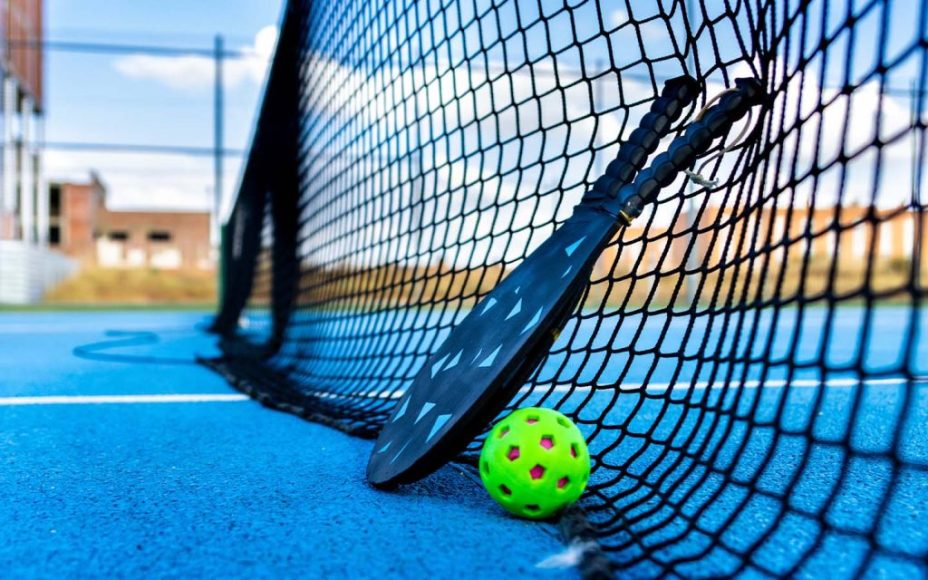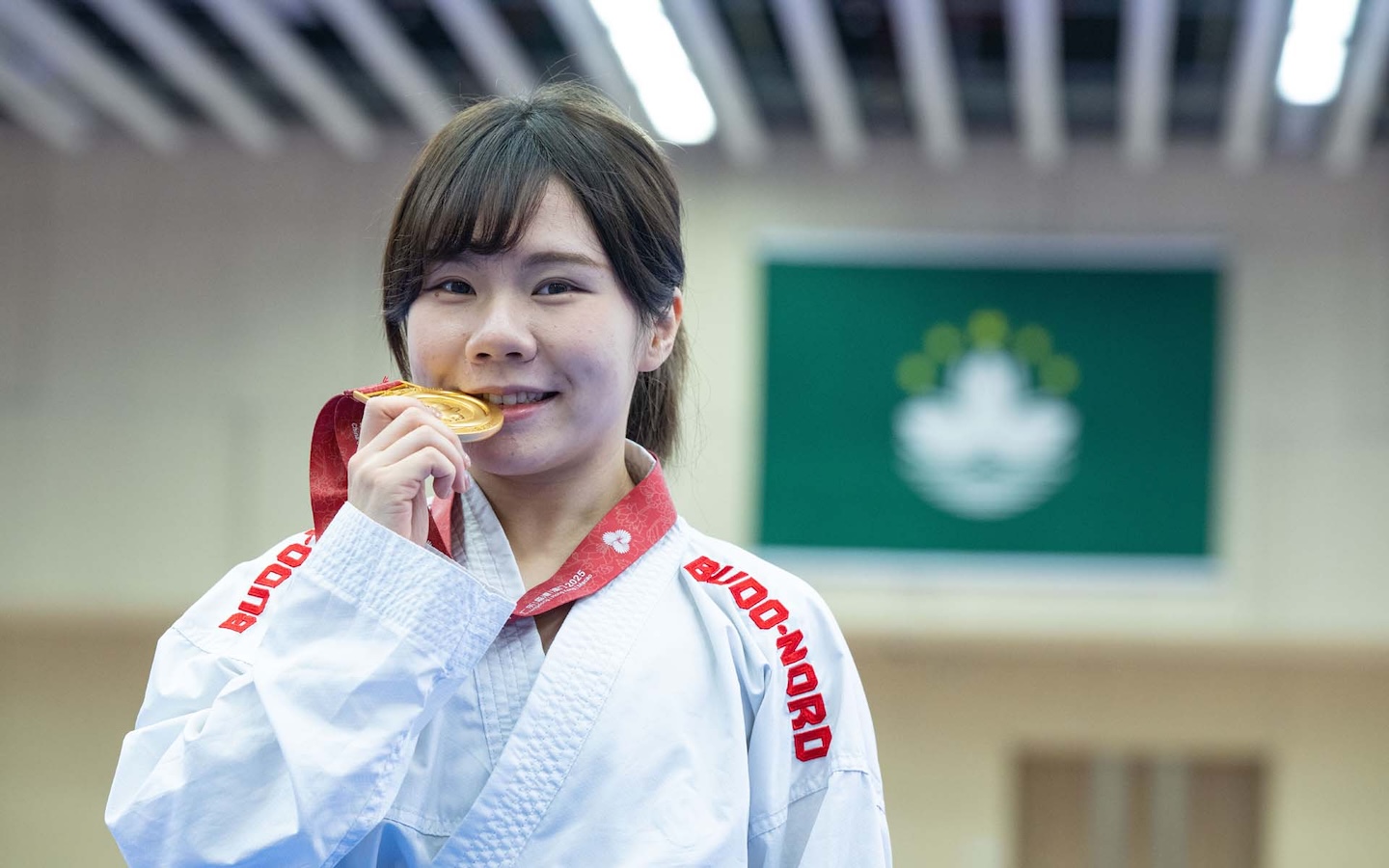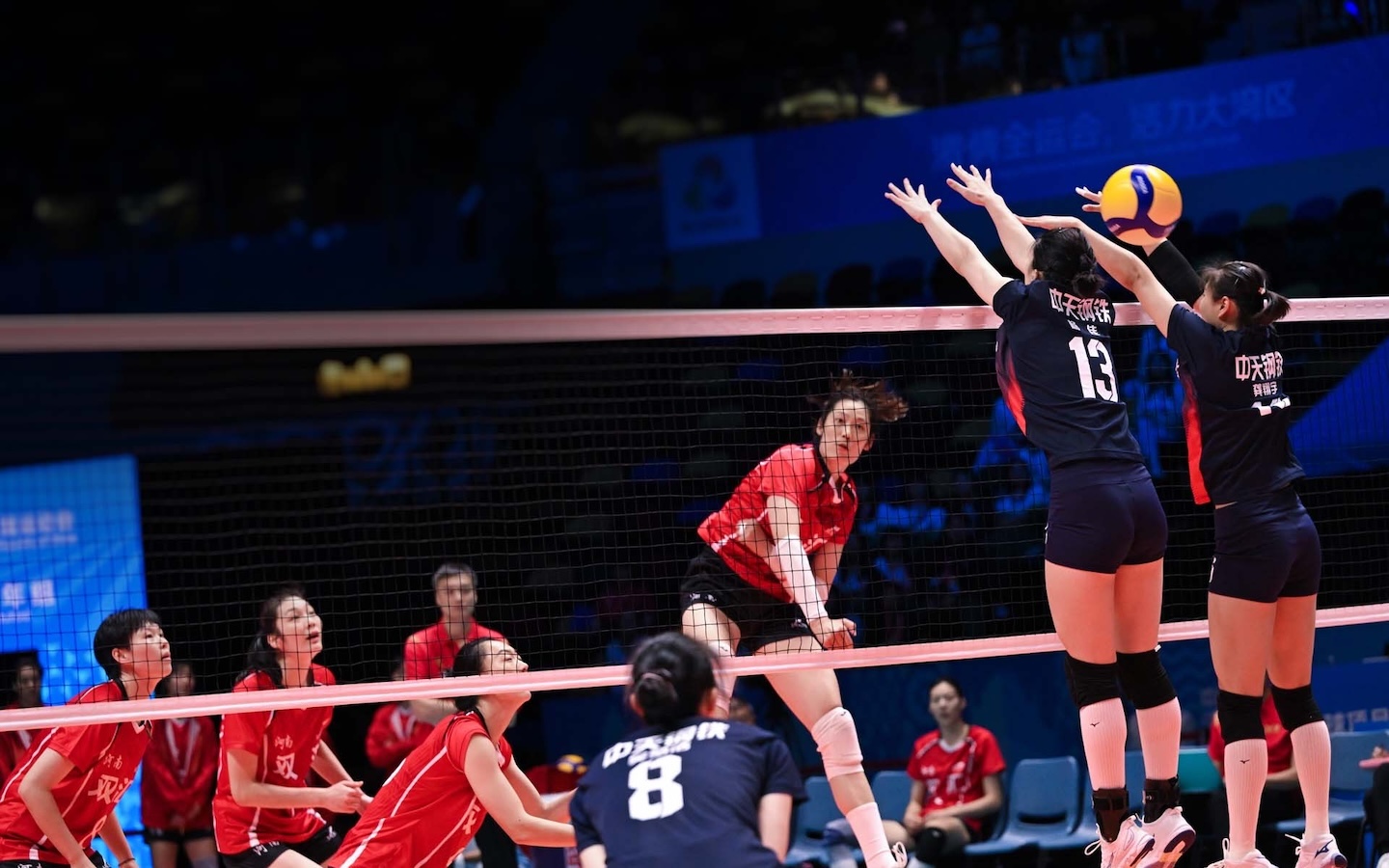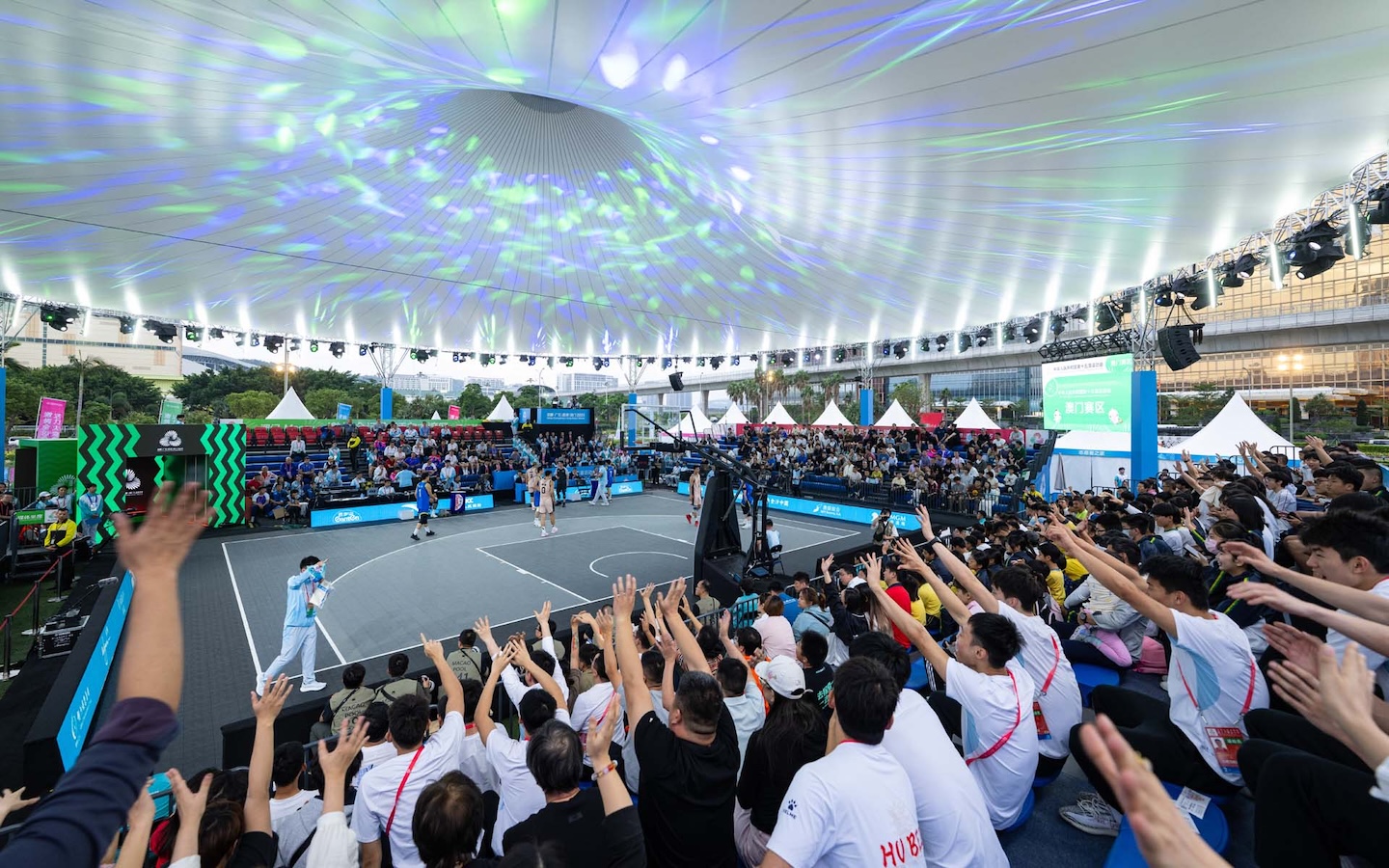Imagine playing a game of tennis with a ping pong paddle, on a badminton court. Now, add some badminton-esque rules and a perforated plastic ball. Voila! You have pickleball, a sport that’s steadily inspiring a following in Macao. The city got its first dedicated pickleball venue in July, at Fisherman’s Wharf, thanks to efforts by local pickleball proponent Marco Leung.
“Our first goal is to have summer camps with kids and students and spread the sport through the community,” the 29-year-old athlete tells Macao magazine. “We hope to have at least 1,000 players by next year.” The former tennis star is one of the city’s few professional pickleball players.
Pickleball emerged in 1965, when an American named Joel Pritchard failed to find a shuttlecock for a game of badminton at his summer home in Washington state. He improvised with ping pong paddles and a wiffle ball, successfully keeping both his own and neighbouring families entertained for the whole summer. Legend has it that Pritchard’s wife named the game ‘pickleball’ because it reminded her of a rowing concept known as the ‘pickle boat’. These were boats manned by crews cobbled together from other teams – much like the hodgepodge inception of her husband’s invention, which has slowly evolved into an official sport.
By the mid-1970s, pickleball was being hailed by the media as “America’s newest racquet sport”. Purpose-built paddles and balls entered the market a few decades later, and the US’ first national pickleball tournament was organised by the USA Pickleball Association (USAPA) in 2009.
Over the past few years, the sport has been repeatedly described as the fastest-growing sport in the US. According to a March 2023 report by the Association of Pickleball Professionals, almost 50 million adult Americans played pickleball at least once in the 12 months prior. And the sport is also gaining traction elsewhere. Particularly in China, which is already known for producing the world’s best badminton and table tennis players. The country holds more Olympic medals than any other in both sports, boding well for a bright future in competitive pickleball.
In fact, the president and founder of the International Pickleball Teaching Professional Association, Seymour Rifkind, said Chinese officials pledged to have 100 million pickleball players and 10,000 pickleball courts by 2030. Leung sees that ambition already. “In China right now, every city is trying to host a pickleball tournament weekly,” the player says. “It’s a lot more amazing than anybody would have thought.”
Pickleball reaches Macao
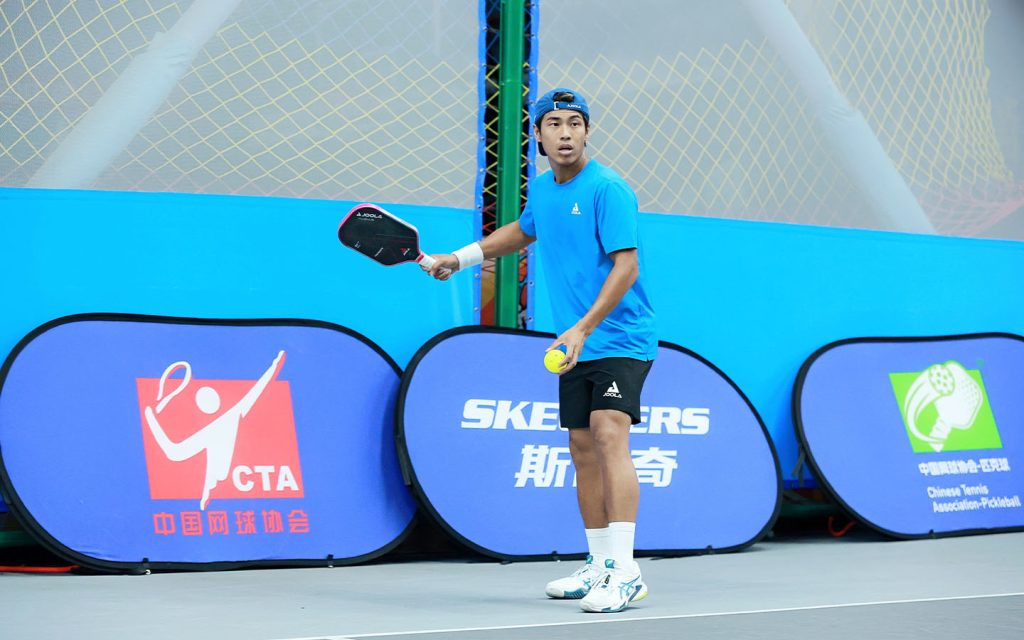
The Macau China Pickleball General Association has been teaching people of all ages to play pickleball at the University of Macau since 2018. Leung didn’t hear about it until last summer, however, when a friend in Canada recommended pickleball as a fun alternative to tennis. Leung promptly bought two paddles, one for himself and another for his girlfriend.
The couple, who already played tennis together, felt like they were progressing quickly at the new sport. After just one week of practice, they decided to enter a pickleball competition in nearby Shenzhen. It wasn’t a success, Leung admits with a laugh. As he puts it, they got “smashed” by their opponents. Like most racquet sports, pickleball can be played in singles, doubles and mixed doubles (with a man and woman on each team).
While the basics of pickleball are easy enough for a tennis player to pick up, Leung says it’s the strategy needed to win that’s different. A pickleball court is much tighter, for starters, and the goal is to outmanoeuvre rather than overpower your opponent. In tennis, players often rely on powerful serves and groundstrokes, whereas in pickleball, success hinges on precision and quick reflexes at the net.
‘They cheer for you’
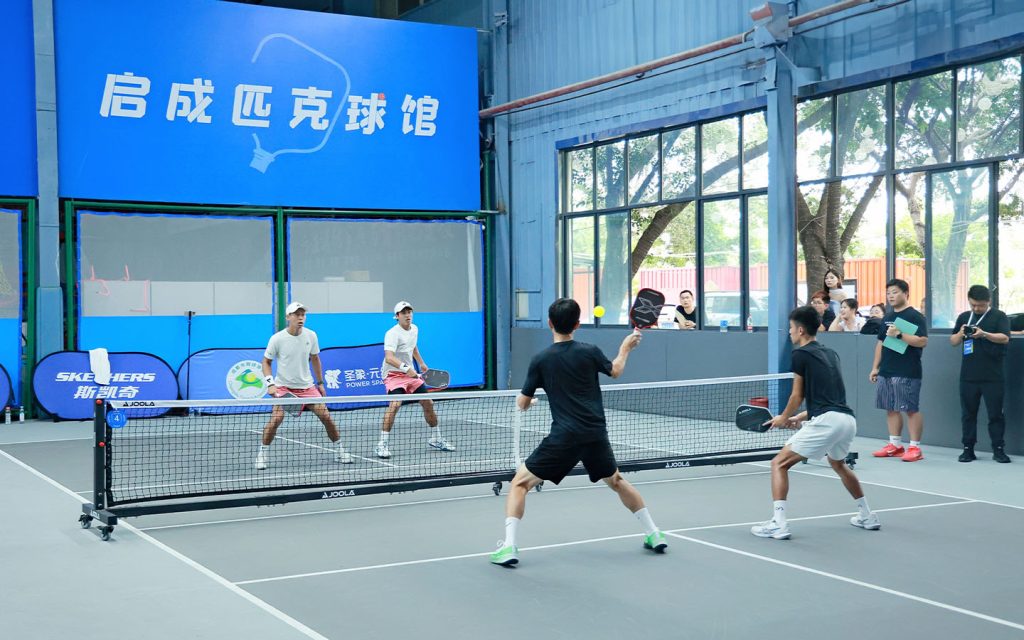
After his Shenzhen defeat, Leung refocused on tennis to represent Macao in last year’s Asian Games (held in Hangzhou, Zhejiang Province). But it wasn’t his most triumphant performance and, afterwards, Leung decided to exchange his tennis racquet for a pickleball paddle. By the end of 2023, he was regularly travelling to different parts of the mainland for pickleball tournaments. He now competes internationally.
One major reason Leung says he fell in love with the novel sport was its enthusiastic, affirmative atmosphere. “That’s something I’ve never experienced in my life,” he explains. “The people who join the tournaments are fired up, but what makes it different is how supportive they are when not playing – or after a game. They cheer for you.”
He admits that another big draw is the prize money. His biggest haul so far was 12,000 yuan, for winning the China Pickleball Tournament in Langfang, Hebei Province, in April.
In Langfang, Leung beat Asia’s number one pickleball player – Neilson Chen, from Taiwan. “All I said to myself was there’s nothing to lose,” he recalls.
A sport on the rise
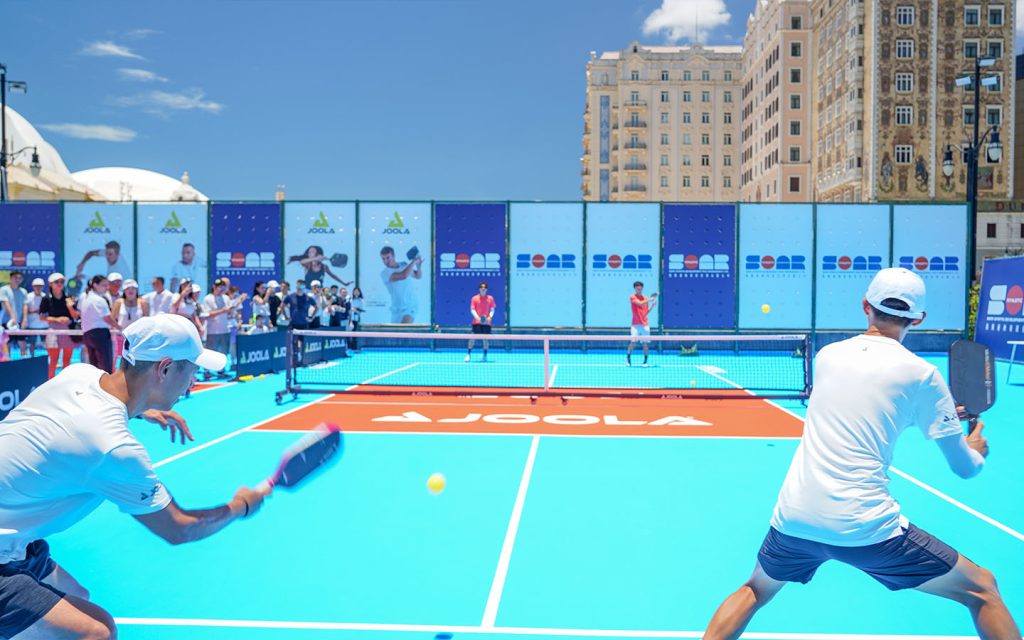
Leung soon felt compelled to share his love for the sport with the rest of Macao. So, he started at the International School of Macao (TIS), his own alma mater. Leung now holds weekly pickleball sessions for students at its campus, and hopes these will eventually morph into inter-school competitions.
Another way Leung is growing the sport is through a dedicated WeChat group, which has ballooned from 40 to around 220 members over the past seven months. The members – all active players – are as young as 10 and as old as 65. Leung is quick to recount a match he lost to a 59-year-old player in Korea earlier this year. “The guy beat me easily,” he says. “His reactions, skills and strategies were so good, which clearly shows that pickleball is for all ages.” Members of the WeChat group get together for two hours each week to practise, with Leung supplying all the necessary equipment. Prior to the city’s new pickleball court opening up, they’d train at local schools’ courts.
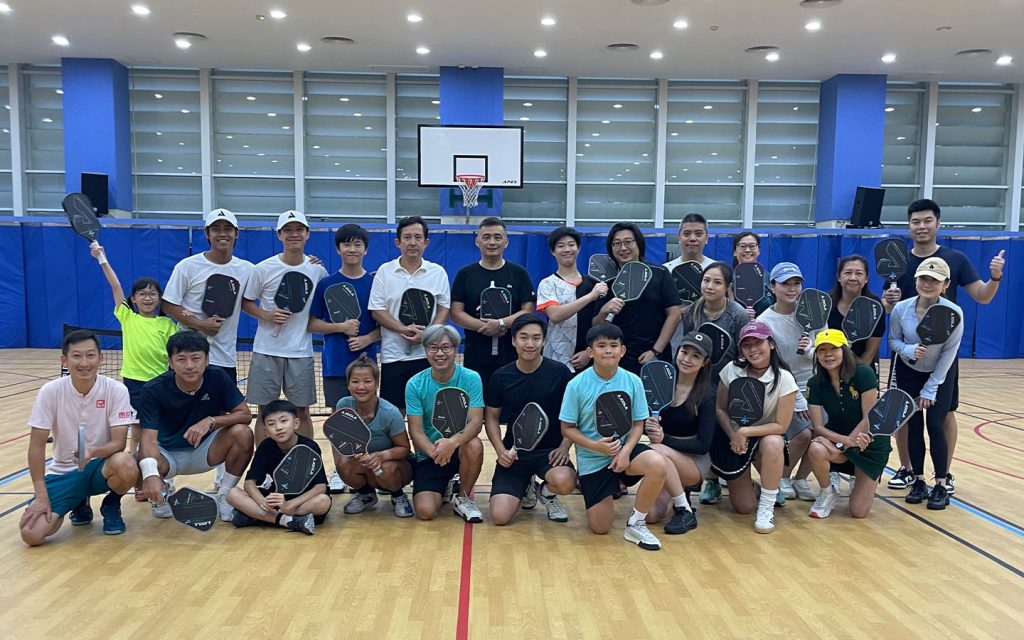
In March this year, Leung and fellow pickleball enthusiasts Ben Ngai and Tenny Li started searching Macao for a suitable space to build a proper pickleball court. It was a struggle to find somewhere with enough space and a high enough ceiling for the right price, but they finally settled on a defunct outdoor parking lot at Fisherman’s Wharf. It was perfect, Leung says, with changing rooms, showers, free parking and food all conveniently nearby.
The trio transformed the parking lot into a four-court pickleball haven, painted bright blue. With the facility finally up and running, Leung anticipates a surge of interest in the sport. He’s planning to host some novelty events – the likes of singles nights and pet-friendly tournaments – to encourage people to pick up a paddle, and is more than willing to help newbies hone their skills. Everyone is welcome: “Pickleball does not require a specific height or weight, all that matters is you enjoy the game,” the passionate pickleball advocate promises.
